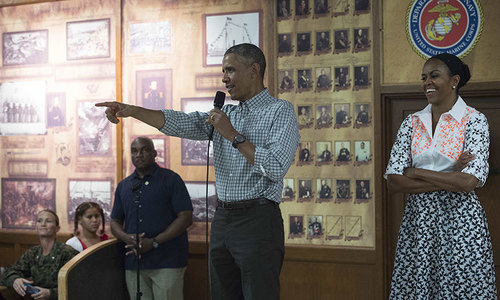BEIJING: China's government won't interfere with fasting and other standard religious activities in the traditionally Muslim region of Xinjiang during the Islamic holy month of Ramazan that begins this month, officials said Thursday.
Restaurants will be allowed to keep their own hours and authorized activities in mosques and private homes will be legally protected, the officials said at a news conference on religious policy in Xinjiang, despite complaints from rights groups and others of past government interference during the religious holiday.
Xinjiang is home to China's Muslim Uighur minority group that is culturally, religiously and linguistically distinct from the Chinese majority. It has seen waves of violence against civilians in recent years which authorities have blamed on radicals seeking independence from Beijing.
China maintains tight restrictions over Islamic observances in the area, in part to maintain government control and stem the influence of radical Islam.
However, human rights groups and Uighurs in exile say restrictions on dress, prayer and fasting during Ramazan have exacerbated ethnic tensions, while government efforts to assimilate Uighurs have stoked resentment.
President Xi Jinping recently stated that members of the ruling Communist Party should be "unyielding Marxist atheists," and the state imposes strict rules on participation in religious by students, teachers, public servants and others.
Chinese officials routinely dismiss criticism of religious policies, and Tuergan Pida, director of Xinjiang's ethnic affairs committee, said at the news conference that religious freedoms are at an "unprecedented" high.
The regional government helped arrange emergency prayer sites following an earthquake during Ramazan last year, while Communist Party officials ate with religious leaders to mark the end of the holy month, Pida said.
Chinese claims of unprecedented religious freedom in Xinjiang are "deeply ironic and troubling" given recent events, said James Leibold, a scholar of China's ethnic policy at Australia's La Trobe University.
Leibold cited the sacking last month of Wang Zhengwei, the Muslim chairman of the State Ethnic Affairs Commission, amid speculation that top Chinese leaders opposed the building of mosques under his watch.
"This illustrates the deep divisions at the top reaches of the party over the value and place of religious and ethnic diversity within Chinese society," Leibold said by telephone.














































